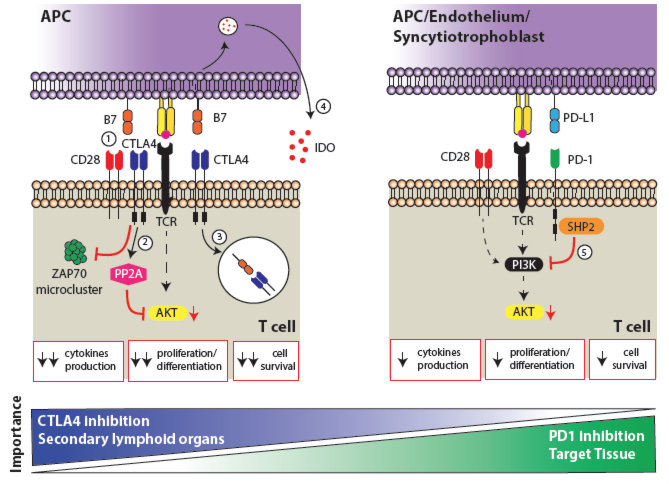Immune regulation is critical for the maintenance of peripheral self-tolerance and for down-regulation of immune responses. Understanding its mechanisms may permit the development of novel targets for the promotion of tolerance in transplantation. Co-inhibitory molecules play a major role in modulating T-cell receptor signaling upon antigen encounter. Their unique patterns of expression, structure, and binding partners account for their diverse function and non-redundancy. Moreover, these inhibitory signals have active roles in both effector and regulatory immune cells in multiple sites, including the target tissue. Herein, we review the recent advances in our understanding of co-inhibitory signaling and its potential clinical applications, focusing mainly on the two best-characterized receptors CTLA4 and PD-1. Recent observations in cancer clinical trials using blocking antibodies against PD-1 or CTLA4, or both, showed a high incidence of autoimmune-related side effects, confirming the important role of these pathways in human immune homeostasis.

